
Domestic Violence
The shattered glass represents the broken lives and dreams caused by domestic violence. abuses in families are absolutely contrary to God’s plan of mutual care and fraternity for humanity. domestic violence, inflicted especially upon women and children, is a horrendous scourge. To eradicate it we need to foster the education on values of love, equality, respect and dialogue, in society. The alleviation of poverty, protection of the vulnerable and law enforcement will give the victims the courage to speak out and unveil this atrocious crime.
Profile • St Joseph of Nazareth
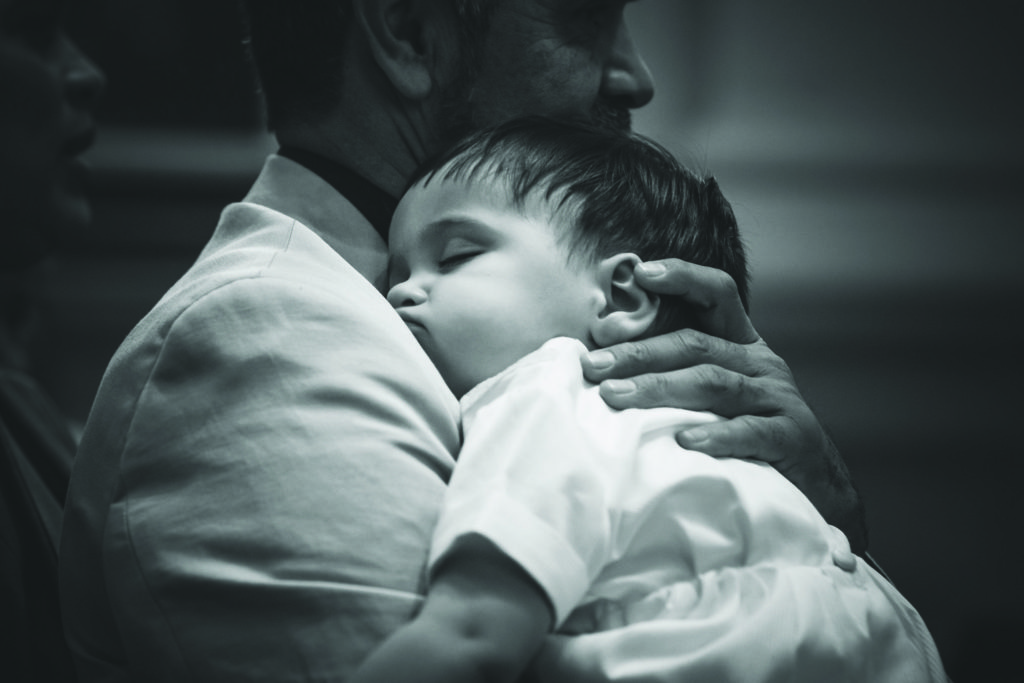
ST JOSEPH OR THE ANTI-CINDERELLA EFFECT
The statistics for violence carried out by stepfather figures against stepchildren are not well collated. A number of academic studies have been carried out in several countries, always with a cohort of around 300 interviewees. Evidence gathered from these studies do suggest that men who have a history of violence in the home can direct that violence towards children who are not biologically theirs. They may also spend less—in terms of time, emotion and money—on those children than they do on children who are biologically theirs.
BY MARIAN PALLISTER | AUTHOR AND CHAIR OF PAX CHRISTI SCOTLAND, uk
THE CINDERELLA EFFECT
However, little academic research may have been done—there has still emerged a term for this: the Cinderella effect. Cinderella, of course, was the stepdaughter in the fairy tale who was confined to kitchen chores while her stepsisters, the baron’s daughters, wore the best, ate the best, and partied with royalty.
The story of Cinderella was first published in Italy by Giambattista Basile in his Pentamerone in 1634; the version most widely known today in the English-speaking world was published in French by Charles Perrault in Histoires ou contes du temps passé (Stories of times past) in 1697.
Being less than kind to stepchildren undoubtedly goes back a long way, and it could be suggested that it might stretch back to a man who in effect had the most famous stepfather role in history. A man named Joseph, who found himself looking after a child named Jesus, biological son of a woman who said she conceived the boy after a visitation from the Holy Spirit.
This could surely have been written as a case study for trainee social workers, staff of women’s refuge homes, and possibly seminarians in forward-thinking colleges that value the pastoral element offered by their curricula.
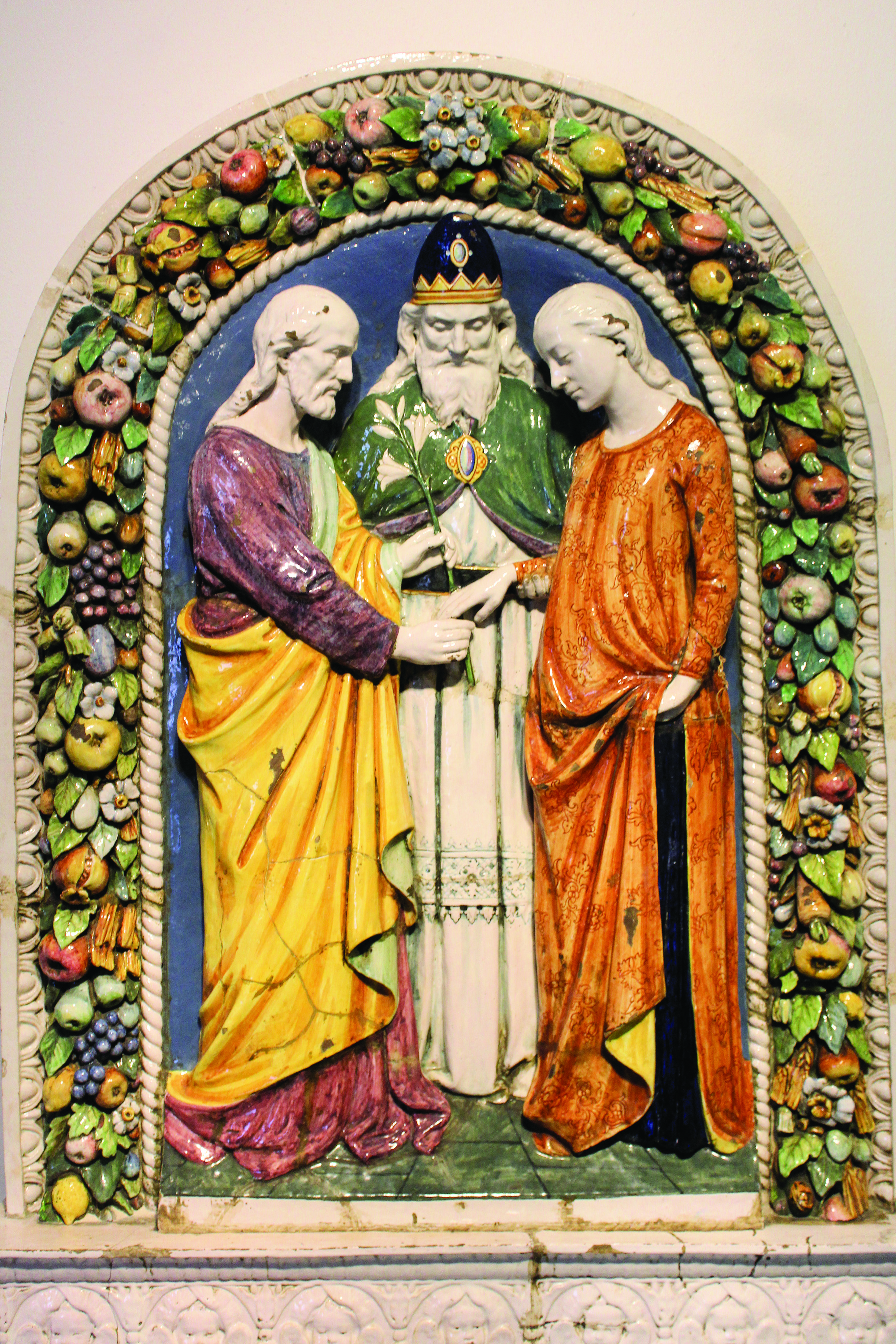
CHOSEN BY GOD
Of course, we are talking about St Joseph: chosen by God to raise His only begotten Son, to care for the woman who was also so very carefully chosen to be the mother of that child.
His credentials would be listed as impeccable, tracing back to Abraham in Matthew’s Gospel and to Adam and God Himself in Luke’s account, although with some discrepancies in names and numbers. The choice was good: the Son he raised was clearly given the very best example in every aspect of life.
There is, however, little written in the accounts of the life of Christ to tell us what this man was really like, other than that he was a ‘just man’. Indeed, despite the hugely important role he played in the life of Our Lord, it was not until 1847 that Pope Pius IX extended the Solemnity of St Joseph as a feast for the Universal Church. Then Pope St John XXIII inserted his name into the Canon of the Mass on the eve of the Second Vatican Council, in the middle of the 20th century. Pope Francis proclaimed a Year of Saint Joseph from 8 December 2020 to 8 December 2021.
From a woman’s perspective, and given the customs of the day, Joseph shows much promise as a husband right from the start in the kindness and gentleness he shows towards Mary—even before he has the dream in which God explains what he must do to make things right for this woman to whom he is espoused, with whom he has not had a sexual relationship, and yet who now tells him she is expecting a child.
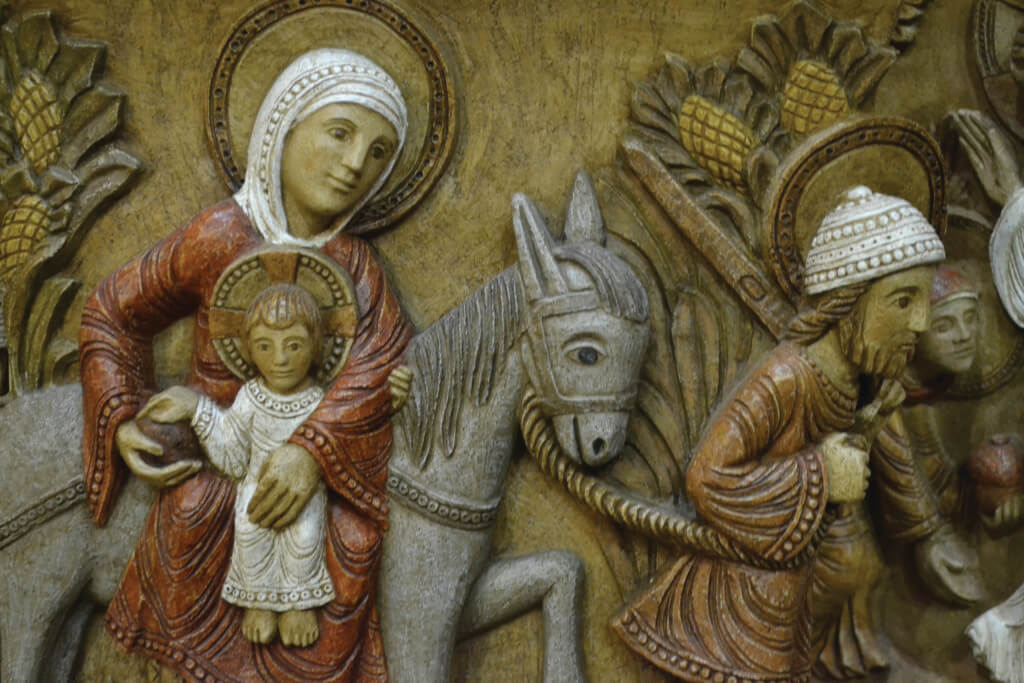
SPOUSES
Scholars have still not agreed on whether the Greek description of the relationship of Mary and Joseph as ‘espoused’ meant they were—to use a modern term—engaged to be married, or if they were actually married but not yet living together. Whatever the legalities, Joseph and Mary were certain that the child she was expecting could not be his. Joseph considered quietly severing the knot that bound them and letting the issue unobtrusively resolve itself. He was certainly not going to publicly accuse Mary of being unfaithful— there was not to be stone-throwing as was threatened against the woman, Mary Magdalene, ‘taken in adultery’ during Jesus’ ministry.
Then, of course, Joseph is taken into God’s confidence and given the task and the pathway. The angel tells him not to be afraid to take Mary as his wife, that he must call the child Jesus, and that Jesus will save people from their sins (Mt 1: 20, 21). Joseph did all that he was told in the dream, and as Pope Francis points out in his apostolic letter, Patris Corde, written on the 150th anniversary of the proclamation of St Joseph as Patron of the Universal Church and ahead of this Year of St Joseph, “Obedience made it possible for him to surmount his difficulties and spare Mary.”
A FATHER’S HEART
In that same apostolic letter, Pope Francis says that Joseph loved Jesus “with a father’s heart”. Not as if he were looking after someone else’s child; not with the slightest suggestion of a Cinderella effect creeping in.
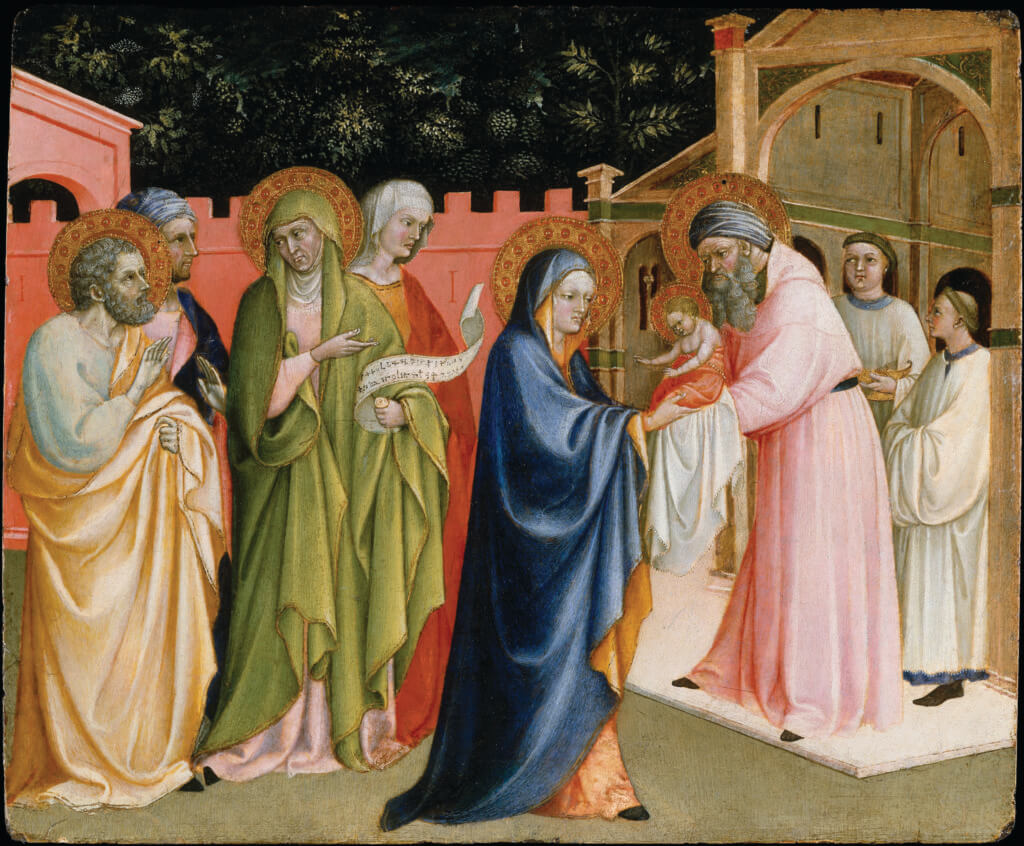
A FAMILY OF REFUGEES
This baby was precious enough in his heart for Joseph to leave his business behind and flee as a refugee to Egypt when Herod threatened to slaughter all infants under the age of two, and to stay there until he learned (again in a dream) that the patriarch was dead and the danger was ostensibly over. These were violent times. We are shocked by Herod’s cruel edict, a man who needed by whatever means to hang onto what little power he was allowed by the Roman regime. Mary and Joseph lived in occupied territory. There was constant subversive activity by the Jewish population against a Roman presence that didn’t just disrespect their religious beliefs, customs and traditions, but viciously punished subversion with torture and crucifixion.
Traditional Jewish punishments were harsh enough—stoning to death or the threat of stoning is mentioned several times in the New Testament for a range of designated crimes, and sometimes simply because the mob was unhappy with a speech or an action. Little wonder, then, that Joseph readily obeyed the angel’s instruction to leave the country and seek refuge elsewhere.
When the little family returned to their own country, there must have been decisions made as to where they would live. Bethlehem in Judea was Joseph’s home territory and why he and Mary registered there for the census. It seems reasonable to assume, however, as so many scholars do, that he had been living in Galilee—how else did he meet Mary? Certainly she was living there at the time of the Annunciation, because she went to see her relative Elizabeth in the nearby Galilean hill country.
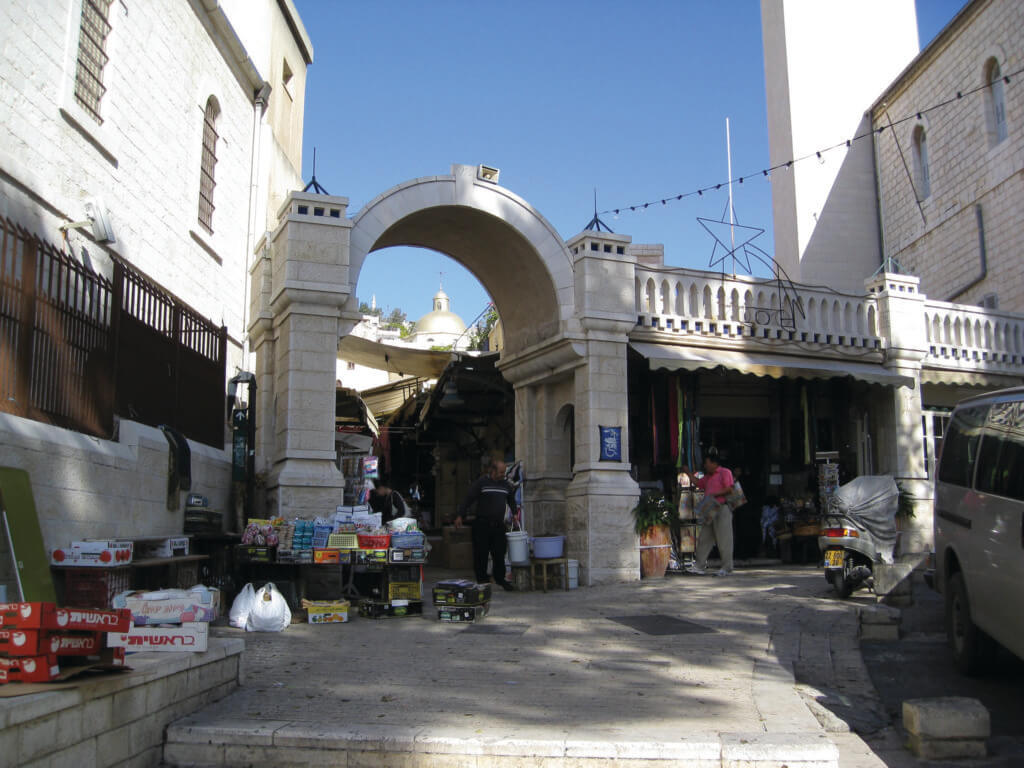
LIFE IN NAZARETH
Nazareth was the small town where the family now settled and we have been taught down the centuries that Joseph—and in his turn, Jesus—was a carpenter. But the translation of the word tekton, Joseph’s given occupation, could mean a master craftsman working in either wood or stone. As wood was scarce in Galilee while stone was plentiful, was Joseph in fact a stonemason? Is that why Jesus grew up to use phrases such as “the stone that the builder rejected has become the corner stone”? Did Joseph and his Son work as stonemasons (or indeed carpenters) in the nearby Sepphoris (Zippori in Hebrew), a new town billed as ‘The Jewel of Galilee’ and the vanity rebuild of Herod Antipas, successor to the Herod who had made the Holy Family become refugees? The city had been burned down by the Romans to quell a Jewish uprising and was now being rebuilt as a provincial capital, complete with an amphitheatre that could hold 4 000 people and a palace for Herod Antipas. It seems doubtful that our skilled craftsman would have settled for the negligible trade Nazareth could provide when a daily hour’s walk would take him to a building site requiring artisans like him.
Tradition also has it that Mary’s parents, Joachim and Anna, lived there, and the man who was proving himself to be a model husband and father would no doubt have been pleased to visit his in-laws—but that is to take us forward to a time when Joseph could teach his stepson those skills.
When Jesus was 40 days old, Joseph made sure he was taken to the temple as required by the Jewish religious ritual of Redemption—an obligatory ceremony for firstborn boys. He was proud of this child and treated Him as his own firstborn. It was also time for Mary to perform her own religious ritual of Purification. For the Redemption ritual, Joseph would have had to pay five shekels, and Joseph also bought two doves as a sacrifice. The doves were specified as the required sacrifice according to Lev 12.1–8 and Joseph was treating this baby as his own—no hint of the Cinderella effect.
JESUS, THE ADOLESCENT
Fast forward to Jesus at the age of twelve, and we find the Holy Family in Jerusalem, where they went every year for the Feast of the Passover (Luke 2: 41–52). This was a three-day walk and would no doubt have been undertaken in groups of family or neighbours. In the global north we have forgotten that it takes a village to raise a child and so we feel that Joseph and Mary were a little cavalier in their parenting when we read that Jesus went missing. But there will be those reading this for whom such a situation would be perfectly normal—“If he’s not with us he must be with his aunt, his cousins, the neighbours down the street. We’re all travelling home together, what’s the worry?”
After a day, alarm bells started to ring and Joseph, the responsible and loving father, turned around and with Mary went back to Jerusalem—a whole day’s journey, which would have to be repeated in reverse, no doubt with ramifications on his work back home. Joseph was anxious, especially as it took three days to find Jesus, sitting in the temple courts among the teachers, listening to them and asking them questions. He had already amazed those present. Now His parents were astonished but it was Mary who gave Him the ticking off: “Son, why have you treated us like this? Your father and I have been anxiously searching for you.” Joseph doesn’t sound off at Him for wasting all this precious time, doesn’t haul Jesus off in disgrace, doesn’t belittle Him for asking all those questions. The Boy was loved. Joseph was the Dad we’d all like in those circumstances.
Was it hurtful for Joseph to hear Jesus say “Didn’t you know I had to be in my Father’s house?” Certainly neither parent quite understood what was going on, but the arrival of this Child in their lives had brought nothing but surprises and anxieties for all of His twelve years—and would go on doing so.

HUMBLE PRESENCE
Joseph doesn’t make many appearances in the Bible. There is no evidence of a previous wife and family, as sometimes suggested. It can be assumed that by the time of Jesus’ ministry, he had died. Otherwise, it is certain that he would have been there at His side, would have supported Him, been the one to provide a tomb—not the other generous Joseph from Arimathea, the rich follower of the Christ. Mary would not have had to be entrusted to the care of John and vice versa.
As Pope Francis says in Patris Corde, we can know that this was a man of courage, a man who in the words of St John Chrysostom, put himself “at the service of the entire plan of salvation”. Pope Francis reminds us what Pope St Paul VI said of him: “He turned his human vocation to domestic love into a superhuman oblation of himself, his heart and all his abilities, a love placed at the service of the Messiah who was growing to maturity in his home”.
St Joseph may now be Patron of the Universal Church—but we would best offer him to boys growing up in this troubled world as the definitive example of husband and father.
